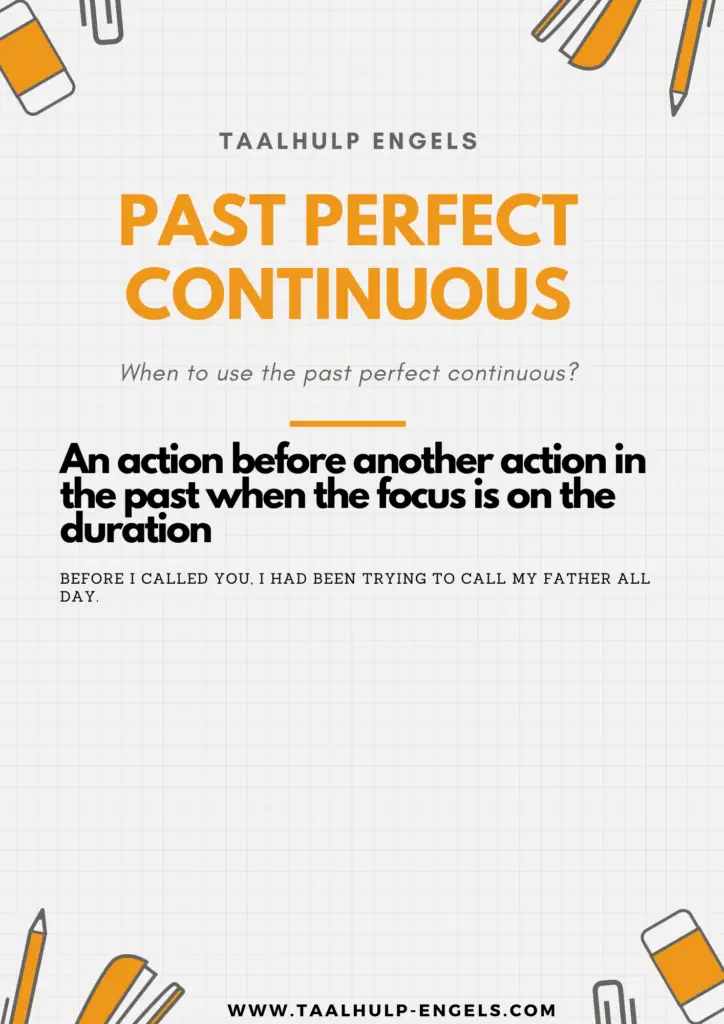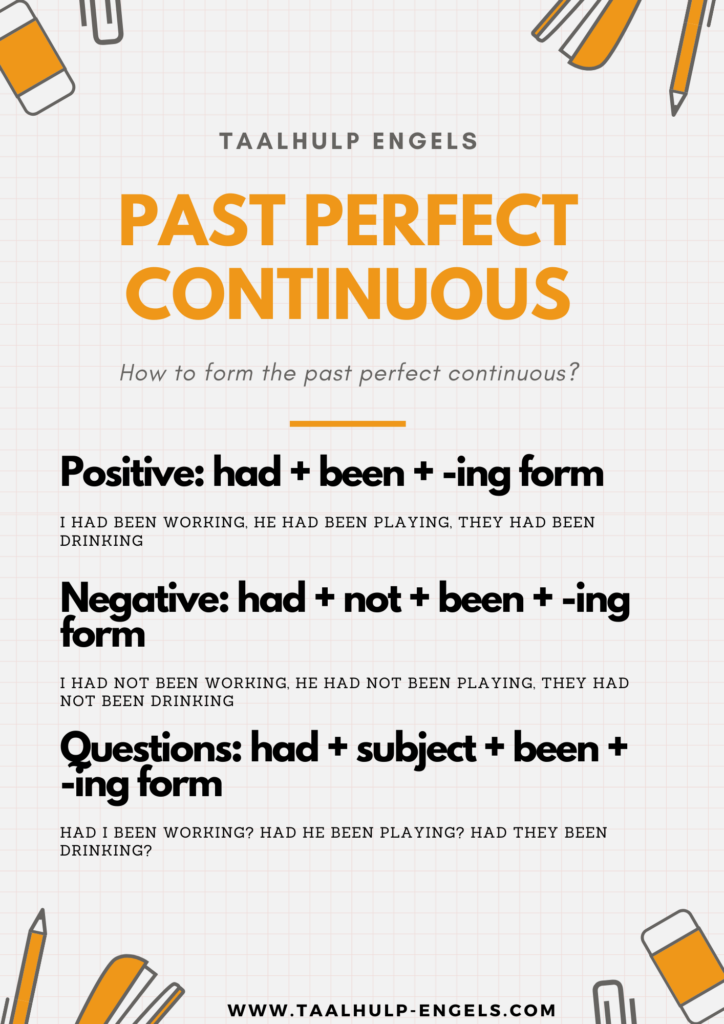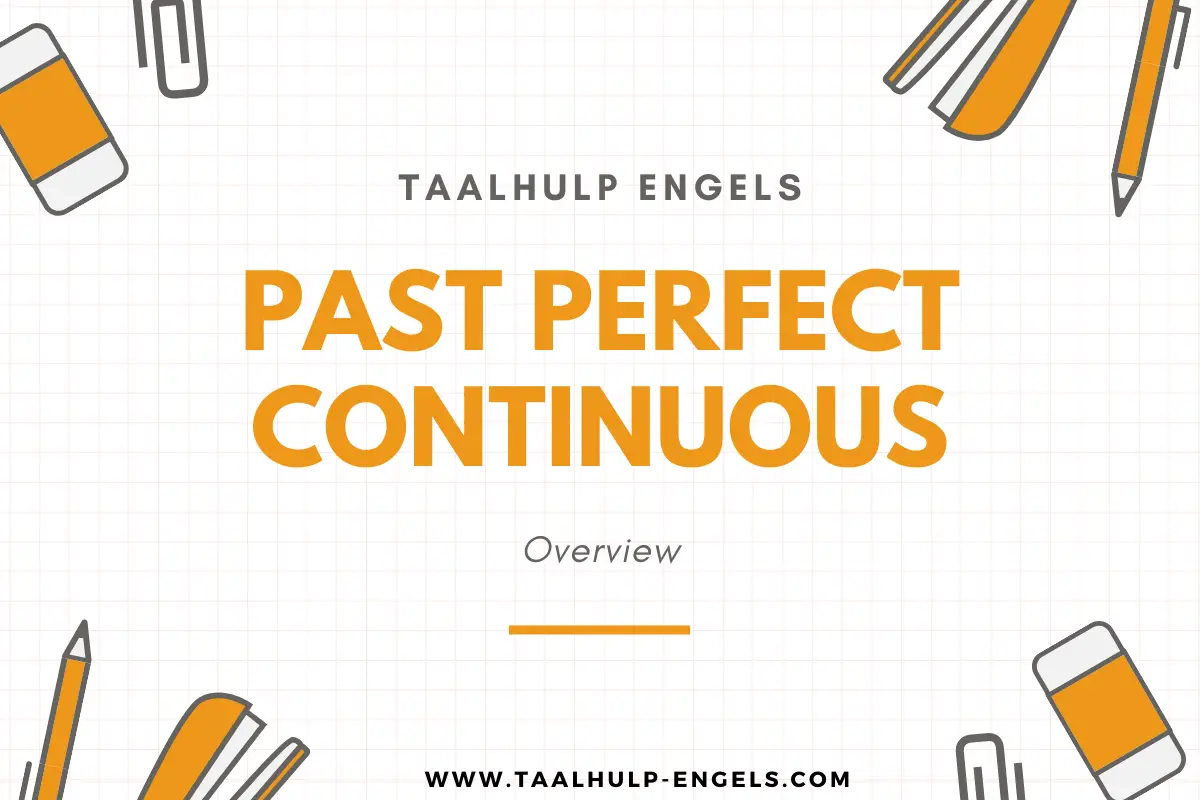The past perfect continuous is an English tense to talk about events or actions in the past. On this page, you have a detailed overview of when to use this tense, how to form it and you also have some examples and exercises.
Past perfect continuous tense
You use this tense to talk about actions or events that happened before another action in the past when the focus is on the duration of the action. It’s important that you use this tense for an action that happened before another action in the past. This means that there is a clear link between the two actions in the past. For more information about the past perfect, click here.
In short:
You use this tense for an action or event that happened before another action or event in the past when you want to stress the duration
- Before I called you, I had been trying to call my father all day.

How to form the past perfect continuous
The past perfect continuous is similar to the past perfect, but there is one major difference: the -ing form of the main verb. You use the -ing form to stress the duration of an event or action.
Past perfect continuous positive
You form this tense by using ‘had’, followed by ‘been’ and the -ing form of the main verb. If you want to form a past perfect continuous, you always need these three parts:
had + been + -ing form of the main verb
| I had been working |
| You had been working |
| He/she/it had been working |
| We had been working |
| You had been working |
| They had been working |

Past perfect continuous negative
To make the negative form, you put ‘not’ right after the auxiliary ‘had’.
| I had not been working |
| You had not been working |
| He/she/it had not been working |
| We had not been working |
| You had not been working |
| They had not been working |
Past perfect continuous questions
Forming questions in the past perfect continuous is a little more complicated. You just need to change the word order. First, you put the auxiliary verb, followed by the subject, been, and the -ing form of the main verb. You always need to write it like this:
had + subject + been + -ing form of the main verb
| Had I been working? |
| Had you been working? |
| Had he/she/it been working? |
| Had we been working? |
| Had you been working? |
| Had they been working? |
Time indicators
If you see this word, it can be an indication that you are dealing with a past perfect or past perfect continuous.
- Before, after
Examples
| Positive | Negative | Questions |
|---|---|---|
| I had been working He had been singing | I hadn’t been working He hadn’t been singing | Had I been working? Had he been singing? |




